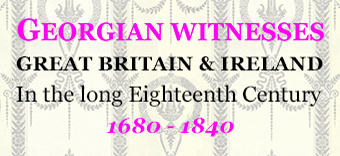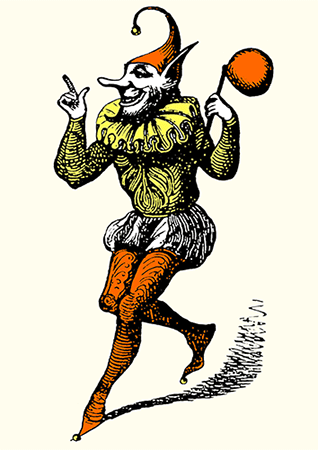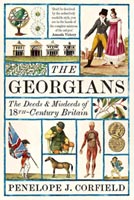Georgian Witnesses
4 / SIX GEORGIAN COMEDIES, FIVE STILL POPULAR TODAY AND A SIXTH ACCLAIMED FOR ITS LIBERAL MESSAGE
4.1 William Congreve (1670 – 1729), The Way of the World (1700): glittering with sharp social satire and equally sharp dialogue
The epilogue expresses a wry disclaimer:
‘After our Epilogue, this Crowd dismisses,
I’m thinking how this Play’ll be pull’d to Pieces;
But pray consider, before you doom its fall,
How hard a thing ’twould be, to please you all’.
4.2 George Farquhar (1677 – 1707), The Recruiting Officer (1706): genial comedy by the Irish actor and dramatist Farquhar, with love entanglements set in Shrewsbury while officers attempt to recruit the locals to serve in the British Army. Includes the wry line: ‘Those who know the least, obey the best’. (Act 4, sc.i)
4.3 Oliver Goldsmith (1728 – 74), She Stoops to Conquer: Or, the Mistakes of a Night (1771; first performed 1773): interesting exploration of sexual timidity on the part of a young gallant, who is liberated when a smart young lady plays the serving-wench – this theme being set amidst jokes about urban style and country rusticity. The opening exchange (Act 1, sc. i) runs as follows:
Mrs Hardcastle: ‘I vow Mr Hardcastle, you’re very particular. Is there a creature in the whole country but ourselves that does not take a trip to town now and then, to rub off the rust a little? There’s the two Miss Hoggs and our neighbour, Mrs Grigsby, go to take a month’s polishing every winter’. Mr Hardcastle: ‘Ay, and bring back vanity and affectation to last them the whole year. I wonder why London cannot keep its own fools at home. In my time, the follies of the town crept slowly among us, but now they travel faster than a stage-coach. Its fopperies come down, not only as inside passengers, but in the very basket’.
4.4 Richard Brinsley Sheridan (1751 – 1816), The Rivals (1775): ever-sparkling comedy by Irish playwright, author, theatre impresario and Whig politician, exploring different variants of the quest for love and marriage, set amidst the urban intrigues of the great resort city of Bath. Introduces the character of Mrs Malaprop, whose bravura mangling of English vocabulary is today acknowledged by the term ‘malapropism’
4.5 Richard Brinsley Sheridan (1751 – 1816), The School for Scandal (1777): comedy of manners, asking how people’s true characters can be understood in the urban cauldron of news, rumours and malicious gossip. Includes a pleasant joke at the expense of Mrs Candour, a non-stop rumour-monger, who remarks: “’tis an old observation, and a very true one; but what’s to be done, as I said before? how will you prevent people from talking?”
MEANWHILE, THE SIXTH COMEDY, WITH ITS LIBERAL SOCIAL MESSAGE, BECAME A SURPRISE HIT IN THE 1790s, AND WAS TRANSLATED IN THE NINETEENTH CENTURY INTO FRENCH, GERMAN, HEBREW, RUSSIAN AND YIDDISH, BUT IS RARELY PERFORMED TODAY
4.6 Richard Cumberland (1731 – 1811), The Jew, or Benevolent Hebrew: A Comedy (1794): a gentle play with a consciously liberal message. as the title character Scheva, a Jewish moneylender, is assumed to be a hard and stingy miser but is revealed as the reverse. The drama was an immediate surprise hit in both Britain and the USA and has been translated into numerous foreign languages. Its explicit critique of anti-semitism was described by Cumberland as a case of using theatre as a ‘school for prejudice’
[ie: a forum to combat and correct prejudice].




